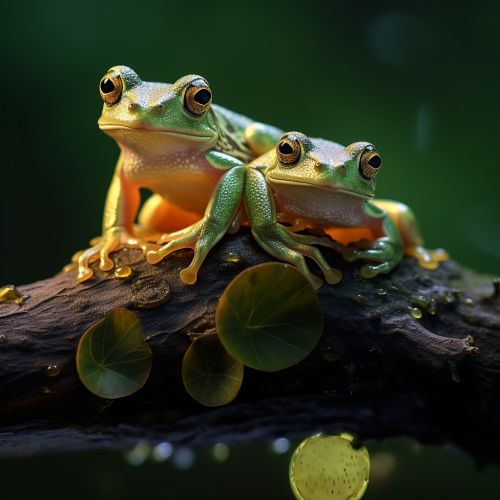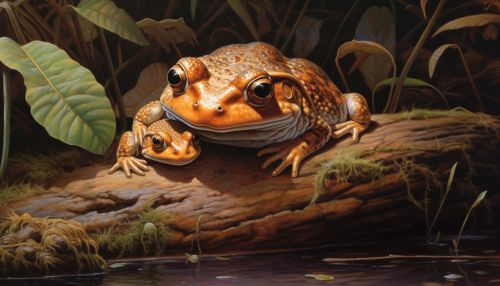The Evolution of Parental Care in Amphibians
Introduction
Parental care in amphibians is a fascinating aspect of their biology that has evolved over millions of years. This article delves into the complex and diverse strategies that amphibians employ to ensure the survival of their offspring.
Evolutionary Background
The evolution of parental care in amphibians is a topic of ongoing research. It is generally believed that the earliest amphibians, similar to their fish ancestors, did not exhibit parental care. However, as amphibians evolved and diversified, various forms of parental care emerged.


Types of Parental Care
There are several types of parental care observed in amphibians, each with its own evolutionary advantages and disadvantages.
Egg Attendance
Egg attendance is the most basic form of parental care, where a parent remains with the eggs until they hatch. This behavior is seen in many species of frogs and toads, and is thought to have evolved as a way to protect the eggs from predators and parasites.
Tadpole Transport
Some amphibians, such as the poison dart frog, exhibit a more active form of parental care known as tadpole transport. In this case, after the eggs have hatched, one or both parents will carry the tadpoles on their back to a suitable water body where they can continue their development.
Brooding
Brooding is another form of parental care where the parent, usually the mother, carries the eggs or tadpoles in a specialized structure or body cavity. This behavior is seen in several species of frogs, such as the Surinam toad and the marsupial frog.
Nest Building
Nest building is a more advanced form of parental care, where the parents construct a nest or burrow for their offspring. This behavior is seen in some species of toads and salamanders, and is thought to have evolved as a way to provide a safe and stable environment for the eggs and tadpoles.
Evolutionary Advantages and Disadvantages
The evolution of parental care in amphibians is thought to have been driven by a combination of factors, including predation pressure, environmental conditions, and the availability of resources.
Advantages
Parental care can increase the survival rate of offspring by protecting them from predators, parasites, and harsh environmental conditions. It can also increase the fitness of the parents by ensuring that their genes are passed on to the next generation.
Disadvantages
However, parental care also has its costs. It can reduce the reproductive output of the parents by limiting the number of offspring they can produce. It can also increase the risk of predation and parasitism for the parents, as they have to stay in one place for a longer period of time.
Conclusion
The evolution of parental care in amphibians is a complex and fascinating topic. It illustrates the diverse strategies that these animals have evolved to ensure the survival of their offspring, and provides insights into the evolutionary pressures and constraints that shape animal behavior.
